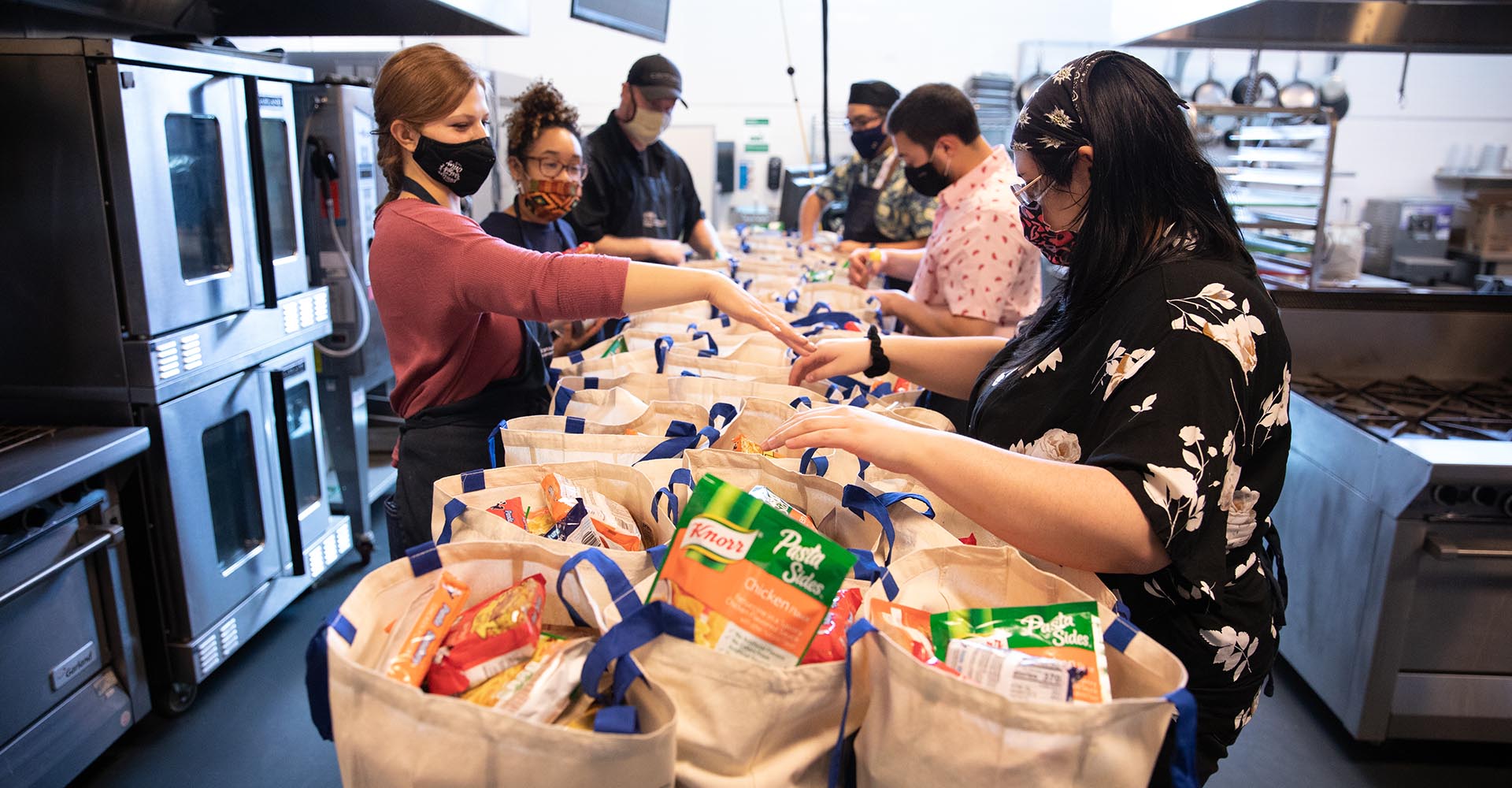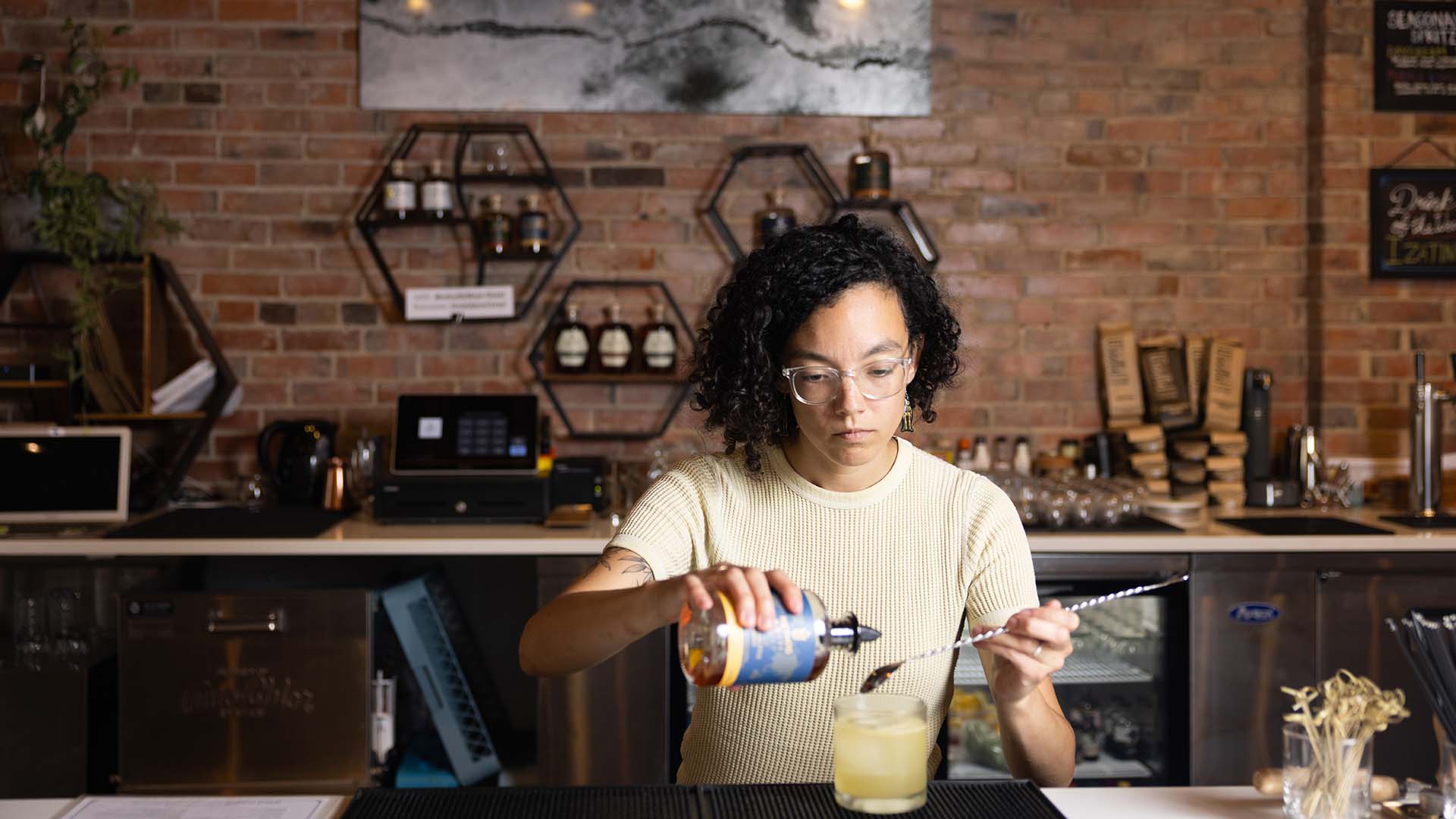Good hospitality
MSU Denver's School of Hospitality distributed food kits to students Thursday to help alleviate the financial strain of the pandemic.

When Metropolitan State University of Denver hotel-management student Bud Ribley got an assignment in his restaurant-concept-development class to help design a food basket for a hungry hospitality student, his first thought was of a classmate he knew who was living in his car while he worked to finish his degree.
“I wouldn’t say I am very food-insecure, but I am a college student and I understand what it’s like to not be making money and not be able to be out making money,” Ribley said. “So I took it to heart a lot and decided this was important.”
Ribley’s assignment was more than just a class project – it was part of an effort led by MSU Denver’s School of Hospitality to distribute food to hospitality students who have been hit particularly hard by the pandemic. Many students studying for careers in hospitality already had jobs in the industry, and when the pandemic closed down restaurants, travel and events, many of those students lost their jobs. After the school received $6,500 in donations, staff members decided to help these students the best way they knew how: through good hospitality.
Each of the 17 students in the restaurant-concept-development class put together presentations on the items they thought should be included. The students had to consider the budget, the versatility of the foods and the potential living situations of the students who would receive the kits. After some debate, the students chose to stick with only shelf-stable foods.
The donations provided enough money to put together 100 food kits assembled in cotton tote bags. Student volunteers helped assemble the bags. When they finished, the kits covered every surface in the School of Hospitality’s kitchens. Staff members distributed the kits for free to hospitality students throughout the day Thursday.
Jason Rice, food-lab coordinator for the School of Hospitality, led purchasing and distribution of the kits. Many of the industries in which the school offers degree programs – hotels, events, brewing and restaurants – have sustained major losses in the pandemic or even shut down, Rice said.
“Being a college student is hard,” he said. “They are working all the time or studying all the time, and now they are reporting to us that they are losing their jobs.”
The kits are one way for the School of Hospitality to acknowledge its students’ struggles and provide a helping hand, he said.
“We just really want to make sure that we take care of our students,” Rice said.

Along with food, each kit included a spice mix designed by the hospitality department to add flavor to all kinds of foods. The kits also came with recipe ideas to help students jazz up the basic foods no matter their living situation.
Students without refrigerators can easily store their food kits without worrying about them spoiling. The restaurant-concept-development class carefully crafted recipes for overnight oats and ramen that would allow students to mix and match the ingredients in their kit without a kitchen.
“The idea was to create recipes that would let you use things from these food bags to make something healthy, easy,” Ribley said. “If you don’t have a kitchen, you can still eat this stuff.”







